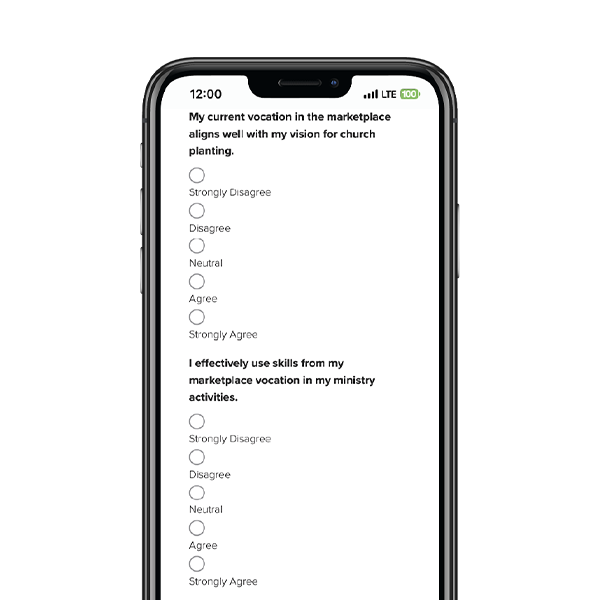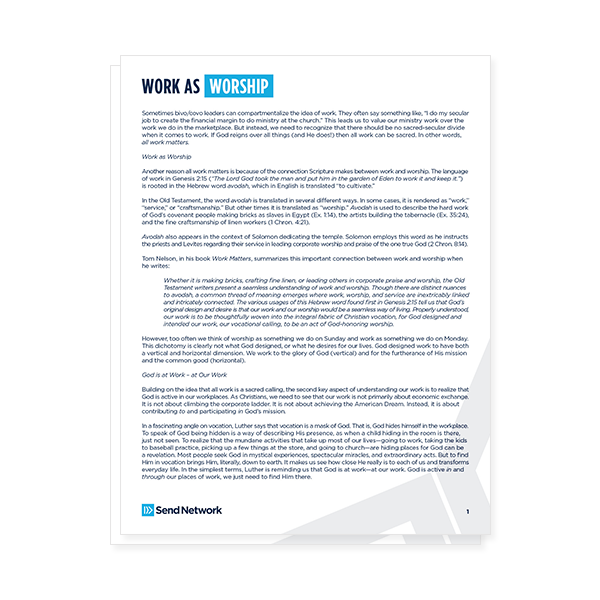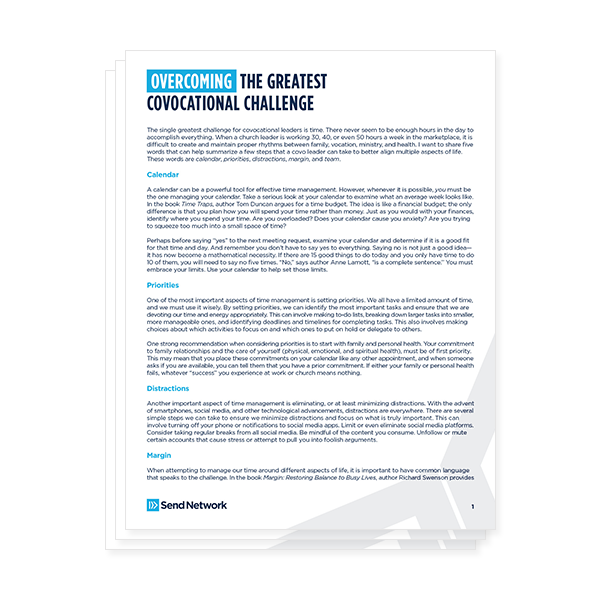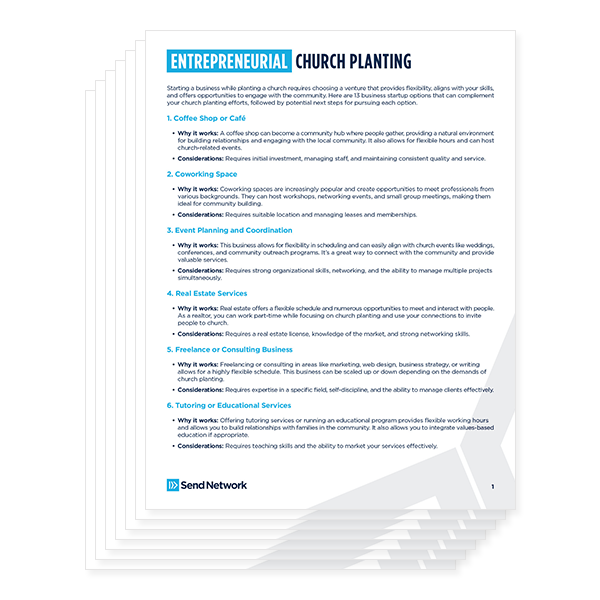Believers participate in Christ’s priesthood, not within the walls of the church, but in the daily business of the world. ~ Lesslie Newbigin
To illustrate why we need to rethink vocation, let us ask you a question. Think about what you did yesterday. Just take a couple of minutes to think about your day. Now answer this question: What percentage of what you did yesterday was spiritual, and what percentage was secular?
Let us ask you a follow-up question. Does selling insurance, running a coffee shop, driving for Uber, teaching at a public school, or waiting tables at the local restaurant matter to God? If we attempt to answer that question by simply listening to the vast majority of the preaching in North America, the answer would unfortunately have to be “Not much.” In one survey, over 90% of Christians said they had never heard a sermon that applied biblical theology to work. Yet Christians may spend more than half of their lives in work-related activities.
The idea of rethinking vocation must start with considering this sacred/secular divide, or what some people refer to as the problem of dualism. Dualism, simply put, is wrongly dividing something that should not be divided. The Greco-Roman thought was that the world is divided into two competing domains: the sacred (spiritual) and the secular (material). Such a worldview tends to assume that the spiritual is the higher realm, and the secular, or material world, lacks deep meaning. Dualism leads to multiple divisions in thinking; including the division between the clergy (spiritual) and the laity (secular), the church (spiritual) and the world (secular), and between so-called religious practices (Bible study, prayer, worship) and so-called secular practices (work, art, eating).
Where this form of dualism happens often — and actually becomes harmful to our understanding of ministry — is in our understanding of vocation. The word ‘vocation’ comes from the Latin vocatio, meaning “a call or summons.” It is normally used to refer to a calling or occupation a person is drawn to or is particularly suited for. The problem of work dualism goes back to the fourth century, when Augustine compartmentalized the way people lived, speaking of the “contemplative” life and the “active” life. For Augustine, the contemplative life was given to sacred things and was seen as a higher calling, while the active life was given to secular things and regarded as a lower calling. This kind of thinking helped create a distorted view of work that continues today.
For example, the language of “full-time Christian work” or “full-time ministry” is commonly used to describe those whose vocational calling is to be a pastor, missionary, or parachurch worker. However, a proper and biblical understanding is that all Christians are called to “full-time ministry,” doing good work well for the glory of God, regardless of their specific vocation. If God reigns over all things (and He does), then all things are sacred. But too often people leave their homes on Monday morning and somehow think they leave God behind. Instead, the church needs to help people recognize that, regardless of what God has called them to do, they are contributing to — and participating in — God’s redemptive mission.
We need to understand the harm a dualistic view of vocation has on our understanding of calling in general, but also on our calling to both be in the marketplace and to plant a faith community. At the North American Mission Board, we have started using the language of “co-vocation.” The prefix ‘co’ means “together” or “in common.” English words like cofounder, copilot or companion are examples of words that denote partnership and equality.
Co-vocation embodies the reality that if a person is called to be a dentist, a teacher, or a plumber — and at the same time called to start a church — the different callings are not isolated from one another. Instead, they are actually interlinked and equal. The language of co-vocation pushes against the temptation to compartmentalize different aspects of our lives. When we begin to understand that each of our callings is legitimate and necessary aspects of God’s mission, they can be leveraged together for His purposes and glory.
Action / Reflection
- Read: “The doctrine of vocation is a theology of the Christian life having to do with sanctification and good works. It is also a theology of ordinary life. … The Christian life is to be lived in vocation, in the seemingly ordinary walks of life that take up nearly all of the hours of our day. The Christian life is to be lived out in our family, our work, our community and our church. Such things seem mundane, but this is because of our blindness. Actually, God is present in them — and in us — in a mighty, though hidden, way.” ~ Gene Veith Jr., God at Work: Your Christian Vocation in All of Life
- In light of the Veith quote, how can you begin to overcome the “blindness” of seeing God in the ordinary? What might you have to change in the way you participate in daily activities? What about in your vocation?
Published April 30, 2018




